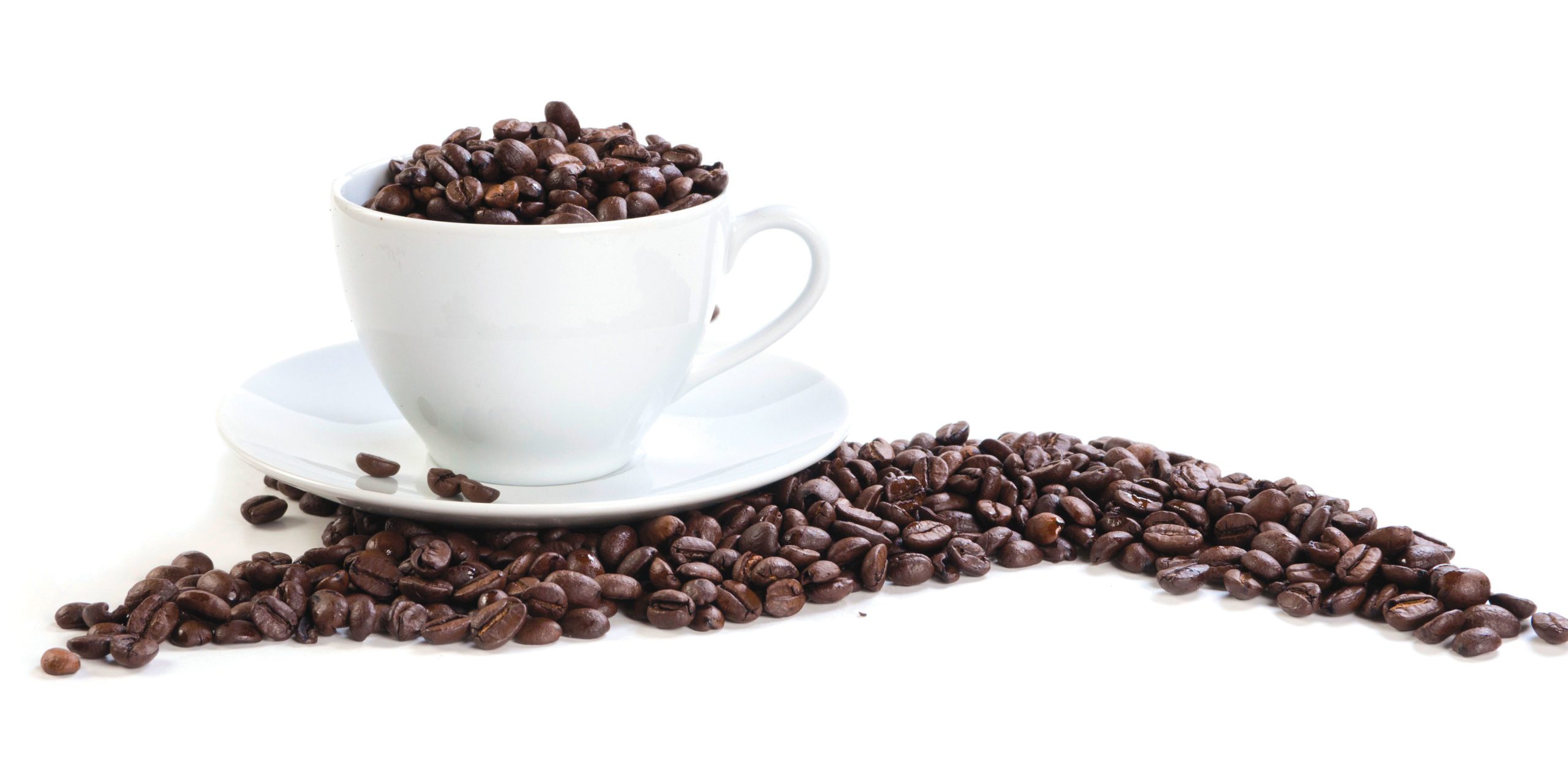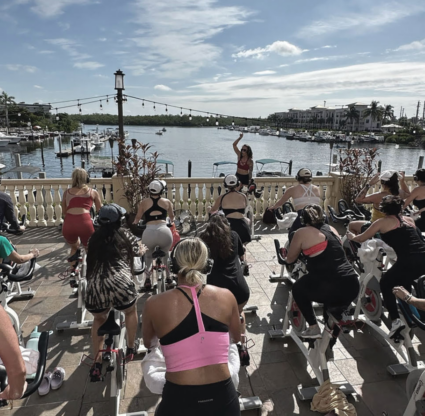Coffee to Curtail Cancer?
Rejoice, Southwest Florida. Your coffee habit may be cutting your risk of melanoma, a serious concern to all those who call the Sunshine State home. A study published in the Journal of the National Cancer Institute analyzed health and dietary data of 447,357 non-Hispanic white ages 50 to 71 and followed them for 10 years. The more coffee participants drank, the lower their risk for melanoma. Those who guzzled four cups or more a day saw as much as a 20 percent reductio n in the incidence of the deadly skin cancer compared with those who drank none.
Hello, Weightlifting—Goodbye, Belly Fat
Wanna lose the gut? Grab some weights. A recent study by the Harvard School of Public Health finds that people who lift weights daily may accumulate less belly fat over the years than people who engage only in daily aerobic exercise.
As we get older, we lose muscle and gain fat, a sad phenomenon evidenced by pudgy waistlines. The Harvard researchers studied the physical activity, waist circumference and body weight of 10,500 healthy U.S. men aged 40 and older during a 12-year span. Those who increased the amount of time spent in weight training by 20 minutes a day were trimmer around the middle than those who increased the amount of time they spent on aerobic exercise. Couch potatoes—go figure—grew the most in the gut.
 Hug It Out
Hug It Out
Feeling lonely? Hire a “cuddler.” We swear we are not making this up: A new “industry” is selling spooning. For as much as $80 an hour, you can hire a professional snuggler to cozy up with you, hug you or tickle you (which is just creepy weird), according to The Wall Street Journal. Professional snugglers will don their jammies and crawl under the blankets—but the action stops there. These are strictly platonic relationships.
Industry trailblazers justify it this way: Cuddling is therapy. Physical touch can increase levels of oxytocin, a hormone that promotes warm feelings, according to the Journal. Touch also may lower heart rates and reduce stress.
You can connect with cuddlers via apps like Cuddlr. As for us, well, we’ll stick with friends and lovers to get these health benefits.
A Berry a Day… A new study led by a Florida State University researcher finds that post-menopausal women who ate the equivalent of a cup of blueberries per day saw a drop in their blood pressure and an increase in their nitric oxide levels, which help to relax and widen blood vessels. We’d love to recommend getting that via blueberry pie, but, alas … this is a health report.
Health in a Hurry
Here’s welcome news for the overscheduled: Mounting research suggests that shorter is better when it comes to working out. Consider this:
• A 2012 Arizona State University study found that patients who completed three 10-minute sessions of aerobic exercise saw lower blood pressure than those who did one 30-minute session per day.
• A recent New Zealand study found that completing a short burst of exercise before each meal helped to keep blood sugar in check for a longer period of time than those who did one 30-minute session.
• Specialists at the Human Performance Institute in Orlando have developed a 7-minute workout consisting of 12 exercises that use nothing more than your own body weight to build strength.
Other strategies are even easier. Simply standing during your workday can increase circulation, build muscle, increase flexibility, burn calories and maintain blood glucose levels. You’ve just lost all your excuses as to why you can’t exercise.
Turning the Page on Sleeplessness
Reading before bed is a winding-down strategy that’s got to be as old as Guttenberg. But our high-tech form of reading—on tablets, e-readers and the like—is not helping us catch our Z’s.
A study of two dozen adults at Boston’s Brigham and Women’s Hospital found the glow from these devices is seriously messing up our sleep patterns.
Study participants using electronic devices had reduced levels of melatonin, took longer to fall asleep and spent less time in REM (rapid-eye movement) sleep than those reading printed books. The iPad users also reported feeling sleepier and less alert the following morning. (E-readers that don’t emit light may not have the same ill effect.)
Lack of sleep contributes to everything from obesity to certain cancers to chronic stress. Perhaps a trip to the good old-fashioned library is in order.
Grains Are Good! Move over, gluten-free. Harvard University researchers found that eating more whole grains is associated with up to 15 percent lower mortality. Heck, you can even pair that bread with butter, which no longer tops the dietary no-no list.
A Menu for Life
It’s months past New Year’s—how are your resolutions?
Yeah, that’s what we thought.
Here’s a little motivator: A new long-term study of about half a million Americans—the largest study of its kind—finds that following the cancer prevention guidelines from the American Cancer Society may indeed reduce your risk of developing cancer, and most certainly reduces your risk of dying. The study, by Albert Einstein College of Medicine at Yeshiva University and the Albert Einstein Cancer Center, found that men who closely adhered to ACS guidelines on diet, exercise and weight control reduced their cancer risk by 10 percent and women reduced theirs by 19 percent. Those dedicated adherents cut their chances of dying of any cause, including cancer, by 26 percent for men and 33 percent for women.
That diet plan suddenly looks more palatable, doesn’t it?




